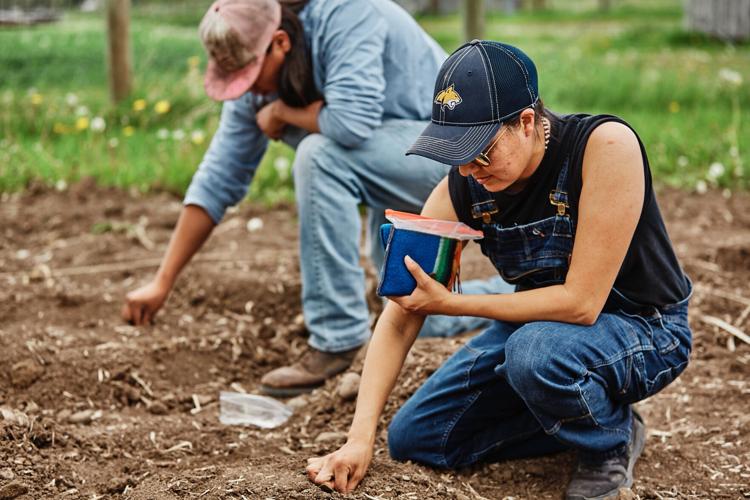Sustainable Food Systems in the Western Great Lakes
Course Description:
Sustainable Food Systems in the Western Great Lakes is a dynamic field course that delves into the complex interplay between food production, environmental sustainability, and community resilience in the region surrounding the Great Lakes. This course offers students a unique opportunity to explore the diverse landscapes, cultures, and food systems that shape the region while examining the challenges and opportunities for creating more sustainable food systems.
Throughout the course, students will engage in experiential learning activities, field trips, and discussions to understand the intricate connections between agriculture, ecology, and social justice. Emphasis will be placed on exploring alternative food production methods, reducing food waste, and promoting equitable access to healthy and nutritious food. In addition, students will be exposed to traditional harvesting methods, learn the importance of tribal foods in a sustainable food system and the critical role of treaty rights in protecting these foods.

Field excursions to farms, urban gardens, food cooperatives, and food processing facilities will provide students with firsthand experience in sustainable food production and distribution practices. They will have the opportunity to engage with local farmers, food entrepreneurs, and community organizers to learn about innovative approaches to regenerative agriculture, agroecology, and food sovereignty.
In addition to exploring food production systems, students will examine the environmental impacts of agriculture, including soil health, water quality, and biodiversity conservation. They will also investigate the social and economic dimensions of food systems, such as food justice, food insecurity, and the role of food policy in shaping community well-being. They will have the opportunity to learn from Indigenous knowledge holders, elders, and community leaders about the historical and contemporary significance of traditional foods and their central role in Indigenous cultural identity and well-being.
Through reflective exercises, group discussions, and project-based learning, students will critically analyze the strengths and limitations of current food systems and explore pathways for creating more sustainable, equitable, and resilient food systems in the Western Great Lakes region.
By the end of the course, students will have gained a holistic understanding of the complex issues surrounding food production and consumption in the Western Great Lakes region. They will be equipped with the knowledge, skills, and motivation to contribute to the development of more sustainable and socially just food systems in their own communities and beyond. Whether pursuing careers in agriculture, environmental advocacy, or public health, students will be prepared to address the pressing challenges facing our global food system.
